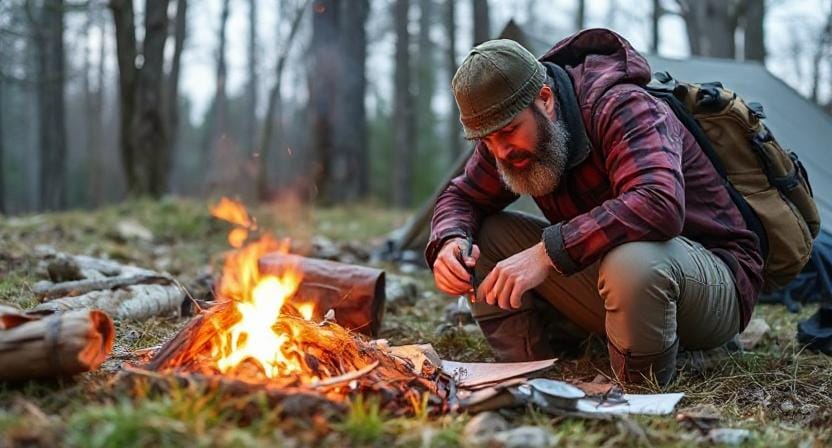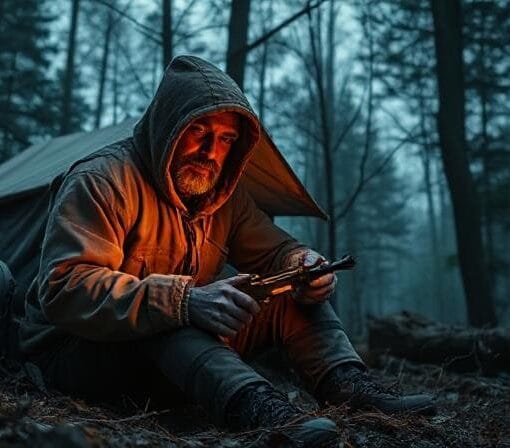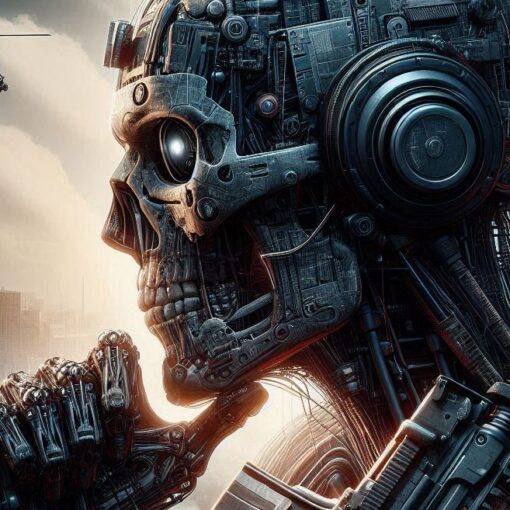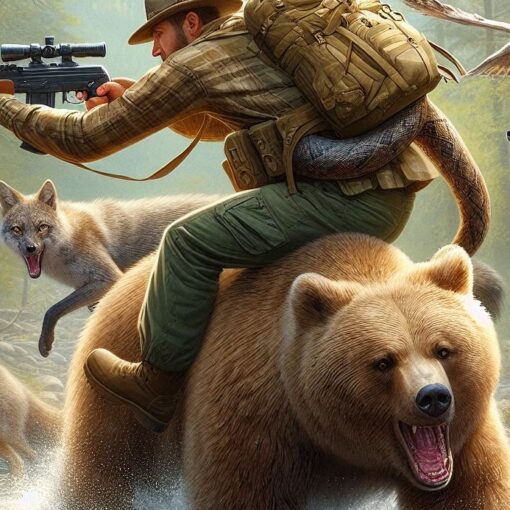Top Takeaways and Key Concepts
- Build situational awareness by paying attention to people, movements, and potential threats around you.
- Practice simple self-defense moves to escape danger quickly and protect yourself confidently.
- Create an emergency plan with escape routes, meeting points, and backup communication signals.
- Keep essential safety gear ready so you can access tools and supplies instantly in a crisis.
- Connect with your community to share skills, strengthen safety, and support each other in emergencies.
Summary of This Article
This article explains why personal safety and self-defense are essential parts of preparedness. It emphasizes staying alert through situational awareness, learning basic self-defense to build confidence, and keeping safety tools accessible at all times. It also highlights the importance of having emergency plans for communication and evacuation, as well as building strong local networks for support. Overall, the message is clear: preparation reduces fear and empowers you to stay safe in unpredictable situations.
Short Video Version of this Article
Hey, buddy! Isn’t it crazy to think about what we would do if everything went wrong? I also find myself daydreaming sometimes. You know, like when you’re reading a good book or watching a very compelling show. It makes the heart race!
Please Note: This post may contain affiliate links. If you click one of them, we may receive a commission at no extra cost to you. As an Amazon Associate, I earn from qualifying purchases.
It’s not just about the fun things like making fires or finding food in the wild. That item is fun, but there’s more. It’s essentially about being smart and remaining safe when difficulty comes up. That’s a bit of a shame, isn’t it? But it’s really vital!

So, let’s talk about some useful ways to defend yourself. Think about how to keep yourself and your things safe. What if someone knocks on your door and you don’t know who they are? A little bit of forethought may make a big difference. It could be as easy as a lock or even knowing who lives nearby. They are small steps, but they make a big difference.
Think about moves for self-defense as well. You can feel more sure of yourself if you practice a few. It’s a little like learning how to dance. You don’t need to be an expert; you simply need to be comfortable enough to feel good if you have to act.
Keep your gear close by and in order. If something happens, you want to be able to get what you need right away. You might have a safety kit with tools that are straightforward to use. The best things are the ones that make you feel safe.
All of this may sound intimidating, but it’s actually about feeling safe. Having a plan makes it easier to appreciate life. So, let’s preserve that sense of adventure while also being sensible about safety! What stories will we have to tell later?
Situational Awareness: The First Line of Defense

Situational awareness is the first thing to think of. It’s like your superpower for staying alive! Knowing what’s going on around you can be the difference between keeping safe and being caught off guard. Think about strolling through a busy market. Instead of staring at your phone, take a moment to take in the sights and noises around you.
Hey you! Let’s speak about how to be aware of what’s going on around you. It sounds easy, yet it’s very beneficial. Have you ever observed something strange? For example, someone might be acting a little peculiar or there might be a lot of people around that feel awkward. Being aware of those subtle indications can help you stay safe. I recall this one time when there were a lot of people there. I saw something strange. Believing my gut? It completely kept me out of a tough spot.
You don’t need fancy tools to work on this talent. All you have to do is pay attention! To begin, pay attention to how people behave in different settings. Is someone hanging around too long? Or maybe behaving anxious? These hints can help you understand what’s going on. If you’re feeling brave, get together with pals and act out different situations. It makes you smarter and more aware.
Experts claim that a lot of safety—like 90%—is just being aware of what’s going on around you. That’s so cool! Let’s get into the habit of doing this! Being awake is like having a superpower, and guess what? It doesn’t cost anything!
Think about all the small things you see every day. It will get easier the more you do it. Your gut feeling will start to kick in. And you’ll be more at ease. Let’s keep our eyes wide open and have fun while staying safe!
Self-Defense Techniques: Empower Yourself

Let’s talk about self-defense tactics now because understanding how to protect oneself can give you power and be very important. It’s important to know how to protect yourself, whether you’re dealing with a violent person or just want to feel safer when you’re outside.
You might want to think about taking martial arts or self-defense programs. These will not only help you get in better shape, but they will also make you feel much more confident. Imagine this: You go into a room full of tough-looking people, but because of your training, you stand up like a superhero ready to fight!
Hey! So, self-defense. It could look scary, right? Don’t worry if you can’t take classes right now. There are a lot of materials available online. You can watch videos that show you how to do simple things, including getting out of clutches or using leverage against an adversary. Those tips are quite helpful!
Fighting back isn’t the only part of self-defense. Sometimes you just have to run away or talk things down. De-escalation is really important. Think about how tense things are. Talking and staying calm could help things not get worse. That’s rather empowering, isn’t it?
You should also think about packing tools for your own safety. Things like tactical pens or pepper spray. They aren’t simply for looks. When things get tough, these can help you out. But keep in mind that it’s not about being mean. The main reason for them is to make people think twice before pestering you. Having them can make you feel better about yourself.
Get yourself ready with information. That’s the thing that really changes the game. The more you know, the better prepared you are for whatever that comes your way. Let’s work together to take those tiny moves.
Emergency Plans: Be Prepared

Let’s talk about emergency plans now that we’re on the subject of being ready. Being ready is really important when things become rough! Having precise preparations in place makes sure that everyone knows what to do in case of a natural disaster or civil disturbance.
First, make a plan for how to get out of your home and find safe places where family members can meet up if they are separated (like rendezvous sites). It may sound like something from a spy movie, but believe me, it pays off big time!
Hello! Let’s talk about ways to talk to one other! We use our phones a lot in this techy age, don’t we? But what if we lose power? Oh no! Our gadgets might not operate. Having backup plans is helpful. Consider making places to meet. You know, places where everyone can go if things go wrong.
Signals could also be entertaining! Like blinking certain patterns with a flashlight. Very easy to do and works great. It’s like a hidden language that only you know.
Now, let’s talk about what we need. It’s really important to have items ready, like food and first aid kits. It feels a little like a safety blanket. It’s also a good idea to make lists. Everyone can have their own. It makes getting supplies easier and a little more entertaining. It also puts people in a good mood, even when things seem wild.
Making good plans for emergencies is really important. It keeps everyone up to date and ready for anything that happens. Doesn’t that make you feel a little better? You can handle anything if you’re ready!
Community Networking: Strength in Numbers
Last but not least, community networking is crucial since there is strength in numbers! Making friends with your neighbors and joining local groups can help you stay safe when things go tough.
Start by getting to know your neighbors, since they probably have the same problems as you do! Setting up community gatherings encourages people to talk openly about safety issues and lets people share useful talents (for example, one person might know how to make traps while another knows how to cultivate).
Have you thought about joining clubs in your area that focus on survival? They can be really good! Picture a group of people talking about how to keep food fresh or how to defend themselves. It’s like a great group where everyone wants to help each other. Those connections are important, even if you’re just drinking coffee and talking online.
It makes a big difference to build relationships like this. That implies more people are looking out for each other. When things get hard, having people who are ready makes things a little easier. And let’s be honest: not knowing may be intimidating. We all feel it at times.
Sharing what you know makes everyone stronger. You learn new things and help one other out. It’s like a safety net. People can share a fantastic way to keep food fresh when they find one. Or if someone finds a new way to protect themselves, they can show the group.
So, consider getting in touch. Get involved in such community networks. They’re not only about staying alive; they’re about making friends, getting help, and growing together. It’s like putting together your own tiny army of helpers. And that feels quite amazing, doesn’t it?
Personal safety starts with awareness and preparation. By staying alert, learning basic self-defense, and keeping essential safety tools accessible, you can respond quickly to danger. Creating an emergency communication plan and building a support network with neighbors or local groups adds an extra layer of protection in uncertain situations.
Frequently Asked Questions
What is situational awareness and why is it important?
Situational awareness means paying attention to your surroundings, noticing unusual behavior, and identifying potential threats before they escalate into danger.
Do I need martial arts training to defend myself?
No, simple self-defense moves like breaking free from grabs or targeting vulnerable areas are enough to escape most dangerous situations.
What should I include in a basic emergency plan?
Your emergency plan should include exit routes, meetup locations, and backup communication methods for staying connected if phones fail.
What kind of safety gear should I keep nearby?
Essential safety gear includes a flashlight, multitool, whistle, first aid kit, and any personal protection tools allowed in your area.
How can I stay calm in a dangerous situation?
Controlled breathing, quick decisions, and sticking to a practiced safety plan help you stay calm and take action under pressure.
Why is community networking important for safety?
Connecting with neighbors or local groups builds mutual support, allows skill sharing, and improves response during emergencies.
How often should I practice self-defense and safety drills?
Practice at least once a month to build muscle memory and stay confident in using your safety and self-defense skills effectively.
Resources:
Survival Skills Handbook
https://www.survivalskills.com
Self-Defense Techniques Explained
https://www.selfdefense101.com
Emergency Preparedness Guide
https://www.ready.gov/emergency-preparedness

Kevin Collier is a seasoned outdoor enthusiast and writer for Trekbug.com, specializing in outdoor adventures, survival strategies, and prepping insights. With a deep love for nature and a commitment to self-sufficiency, Kevin empowers readers to embrace the wilderness confidently. He shares valuable tips, practical techniques, and inspiring stories, helping both novice and experienced adventurers develop essential skills for surviving and thriving in the great outdoors.





